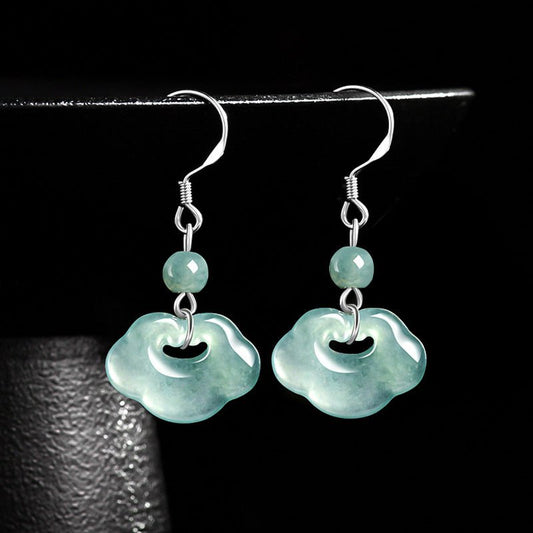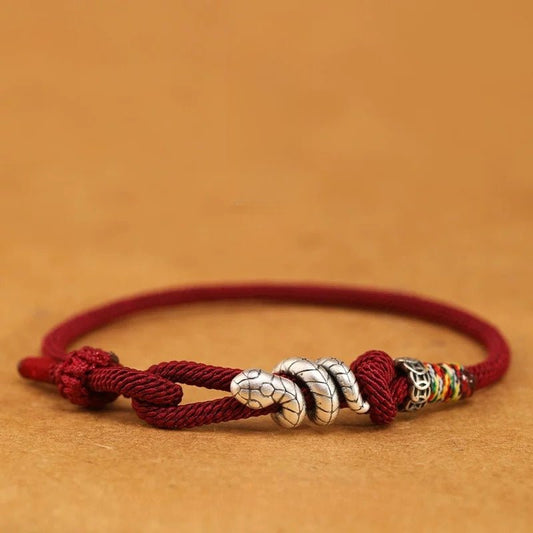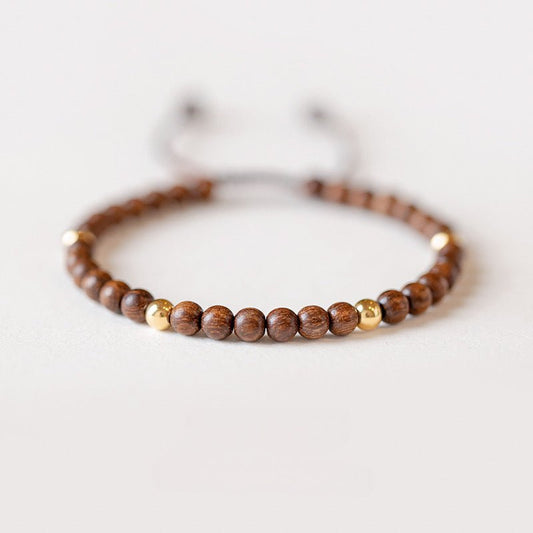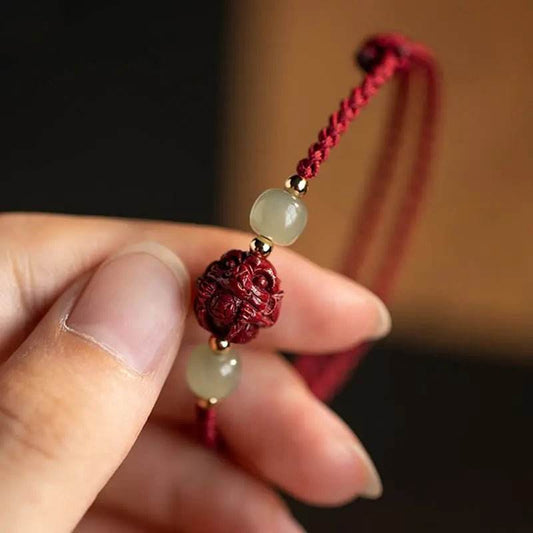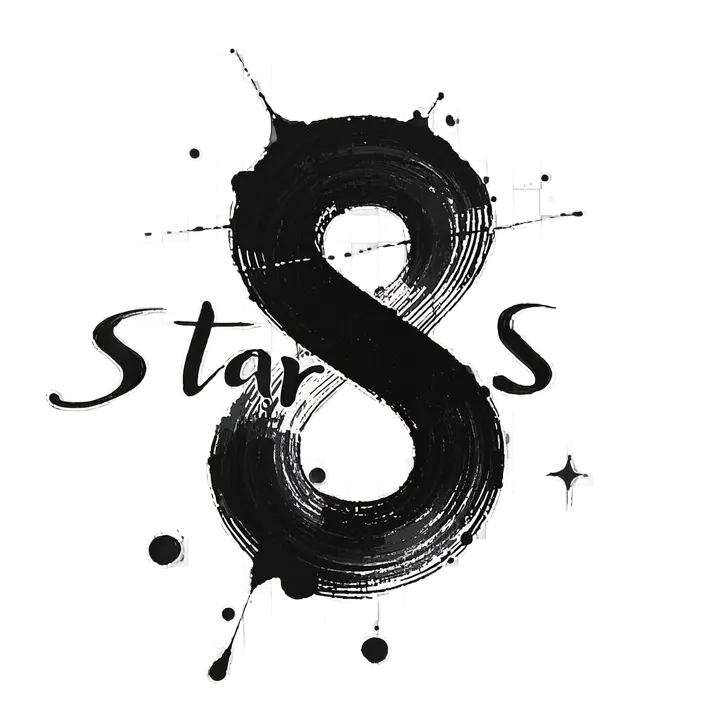Unraveling the Chinese Zodiac Story: A Deep Dive Into Its Mythology and Traditions
Introduction: The Mystique of the Chinese Zodiac 🐭🐯
The Chinese Zodiac has captivated generations for over two thousand years, shaping much of Chinese culture, astrology, and everyday life. 🌟 Whether you're celebrating the Lunar New Year or reflecting on your life’s path, the Chinese Zodiac plays a significant role in how people perceive themselves and others.
At the heart of the Chinese Zodiac story lies a fascinating myth, steeped in mystery and symbolism. 🏮 Each of the 12 animals is not only a symbol of unique personality traits but also part of an ancient tale of gods, creatures, and cosmic forces. If you're interested in astrology, Chinese traditions, or simply curious about this cultural system, you’ve come to the right place. Let’s dive into the legend, the mythology, and the deeper meanings of the Chinese Zodiac!

The Origins of the Chinese Zodiac 🏮📜
The Chinese Zodiac traces its roots back over 2,000 years. Its origins are intertwined with ancient Chinese philosophy, astrology, and mythology. 🌙 But how did it all begin? Let’s explore the ancient foundations of the Zodiac, which tell a story of competition, divinity, and cosmic harmony.
The Legend of the Jade Emperor 🏯
At the heart of the Chinese Zodiac story is the Jade Emperor, a central figure in Chinese mythology. The Jade Emperor is believed to be the supreme deity who governs the heavens and the earth. In an effort to bring order to the world, the Jade Emperor decided to host a race to determine which animals would represent each year in the Chinese Zodiac. 🏁
In the ancient myth, the Jade Emperor sent out an invitation to the animals of the world, offering them a spot in his celestial calendar. But there was a catch: only the first twelve animals to finish the race would secure their places in the Zodiac.
The Animal Race 🐾
The race became a legendary event, filled with determination, cunning, and strategy. The animals had to navigate various obstacles to reach the finish line, and their performance would decide their ranking in the Zodiac system. This race is a central theme in Chinese folklore, and it is said to symbolize the different qualities of the animals, which then became associated with specific characteristics of individuals born in their respective years.
The 12 Zodiac Animals and Their Significance 🐉🐍
Now, let’s take a closer look at the 12 animals that make up the Chinese Zodiac. Each animal is not only a symbol of specific traits but also tied to a deeper meaning. These animals represent various characteristics, and their placement in the Zodiac reflects their behavior during the legendary race.
1. The Rat: Clever and Resourceful 🐭
The Rat is the first animal in the Chinese Zodiac, and its quick thinking and cleverness earned it the top spot. The Rat was the smallest and most cunning, managing to win the race by riding on the back of the Ox and jumping ahead at the last moment to claim victory. This story reflects the Rat’s intelligence, adaptability, and resourcefulness, often symbolizing those who can think on their feet and overcome challenges with quick solutions.
-
Personality Traits: Clever, ambitious, quick-witted, charming.
-
Element: Water
-
Yin/Yang: Yang
2. The Ox: Hardworking and Steady 🐂
The Ox came in second, representing qualities of hard work, reliability, and strength. It plodded along the race, steady and determined. While not as quick as the Rat, the Ox’s persistence and strength helped it achieve a top ranking. This animal symbolizes those who are hardworking, methodical, and patient.
-
Personality Traits: Dependable, strong, practical, patient.
-
Element: Earth
-
Yin/Yang: Yin
3. The Tiger: Courageous and Competitive 🐯
The Tiger, known for its bravery and strength, came in third in the race. While the Tiger was fast and agile, it often lacked patience and determination, which is why it did not finish first. However, the Tiger still symbolizes power, bravery, and a fierce competitive nature.

-
Personality Traits: Courageous, independent, charismatic, competitive.
-
Element: Wood
-
Yin/Yang: Yang
4. The Rabbit: Gentle and Peaceful 🐇
The Rabbit was swift in the race but, at one point, took a nap under a tree. As a result, it didn’t manage to finish in first place, but its gentle and peace-loving nature made it the fourth animal in the Zodiac. The Rabbit symbolizes peace, sensitivity, and gentleness.

-
Personality Traits: Gentle, kind, quiet, artistic.
-
Element: Wood
-
Yin/Yang: Yin
The Mythological Race: How the Animals Were Chosen 🏁🐾
The race held by the Jade Emperor is a crucial part of the Chinese Zodiac story, as it determines the placement and significance of each of the 12 animals. The animals that competed in the race were tasked with crossing a river, each using different methods to navigate the waters.
-
The Rat cleverly used the Ox to cross the river, jumping ahead at the last minute to win.
-
The Ox, steady and determined, almost won, but the Rat’s cunning move secured the victory.
-
The Tiger, known for its strength, was fast but ultimately couldn't keep up with the slower animals like the Ox and Rat.
-
The Rabbit, despite its agility, failed to finish first because it stopped to rest and enjoy the journey.
This mythological race serves as a reminder of how different strengths and weaknesses can shape one’s destiny. Whether it’s through hard work, cunning, or bravery, every animal earned its place in the Chinese Zodiac based on the race’s outcome. 🌿✨
5. The Dragon: Strength and Vitality 🐉
The Dragon is unique in the Chinese Zodiac. Unlike the other animals, the Dragon is a mythical creature—powerful, wise, and often seen as a symbol of good fortune. While many cultures associate dragons with danger and chaos, in Chinese culture, they are symbols of strength, power, and success.
The Dragon finished fifth in the race, despite its strength and regal nature. This was due to the fact that it stopped during the race to help others, reflecting its compassionate and protective qualities. The Dragon is an embodiment of vitality, and people born in the Year of the Dragon are often seen as leaders with ambition, creativity, and confidence.
-
Personality Traits: Charismatic, powerful, ambitious, intelligent.
-
Element: Earth
-
Yin/Yang: Yang
6. The Snake: Wisdom and Intuition 🐍
The Snake is a symbol of wisdom, intuition, and mystery. In the race, the Snake used its cunning and strategy to finish sixth. It’s said that the Snake could have finished faster, but it decided to rest and reflect, embodying its philosophical and introspective nature. People born in the Year of the Snake are often perceptive, insightful, and able to think through problems with careful deliberation.
-
Personality Traits: Intuitive, wise, charming, calculating.
-
Element: Fire
-
Yin/Yang: Yin
7. The Horse: Freedom and Independence 🐴
The Horse embodies freedom, energy, and independence. Known for its agility and power, the Horse finished seventh in the race. It represents individuals who are energetic, enthusiastic, and love adventure. The Horse values freedom and is always on the move, often seeking new experiences. People born in the Year of the Horse are typically independent, sociable, and action-oriented.

-
Personality Traits: Energetic, independent, courageous, social.
-
Element: Fire
-
Yin/Yang: Yang
8. The Goat (or Sheep): Peace and Creativity 🐐
The Goat (or Sheep) is the symbol of creativity, artistry, and peacefulness. In the race, the Goat came in eighth, often seen as slow and steady, preferring peace and quiet over competition. The Goat represents individuals who are gentle, compassionate, and artistic. People born under this sign are often thoughtful, considerate, and have a strong sense of beauty and creativity.
-
Personality Traits: Artistic, peaceful, kind-hearted, creative.
-
Element: Earth
-
Yin/Yang: Yin
9. The Monkey: Intelligence and Agility 🐒
The Monkey is associated with intelligence, wit, and playfulness. It finished ninth in the race, despite its speed and agility, because it got distracted by its own curiosity. The Monkey represents individuals who are innovative, quick thinkers, and adaptable in solving problems. People born in the Year of the Monkey are often charming, humorous, and highly social.
-
Personality Traits: Intelligent, witty, energetic, clever.
-
Element: Metal
-
Yin/Yang: Yang
10. The Rooster: Confidence and Diligence 🐓
The Rooster is a symbol of confidence, precision, and diligence. The Rooster finished tenth in the race, thanks to its hard work and meticulous nature. People born in the Year of the Rooster are often organized, disciplined, and practical. They take pride in their work and are often perfectionists, excelling in everything they do.
-
Personality Traits: Confident, hardworking, honest, meticulous.
-
Element: Metal
-
Yin/Yang: Yin
11. The Dog: Loyalty and Honesty 🐕
The Dog is synonymous with loyalty, honesty, and compassion. The Dog came in eleventh, reflecting its humble, loyal nature. While not the fastest, the Dog finished with integrity and heart. People born under the Dog sign are known for their loyalty to friends and family, their strong moral compass, and their ability to support others through thick and thin.
-
Personality Traits: Loyal, honest, compassionate, protective.
-
Element: Earth
-
Yin/Yang: Yang
12. The Pig: Honesty and Good Fortune 🐖
Finally, the Pig rounds out the Chinese Zodiac as the twelfth animal. Known for its honesty, good fortune, and generosity, the Pig represents individuals who are sincere, kind-hearted, and always willing to help others. In the race, the Pig finished last, but it was happy and content with its efforts. People born in the Year of the Pig are often viewed as easygoing, generous, and fortunate in many aspects of life.
-
Personality Traits: Honest, generous, compassionate, lucky.
-
Element: Water
-
Yin/Yang: Yin
The Chinese Zodiac in Modern Times: How It Shapes Culture and Astrology Today 🌍🔮
The Chinese Zodiac continues to play a significant role in modern Chinese culture, astrology, and daily life. From the annual Lunar New Year celebrations to personal decision-making, the Zodiac influences everything from naming children to choosing career paths. Let’s explore how the Chinese Zodiac has endured and evolved over the years.
Chinese New Year and the Zodiac 🏮🎆
One of the most prominent ways the Chinese Zodiac is celebrated today is through Chinese New Year, also known as the Spring Festival. Every year, the animal associated with the new year takes center stage in parades, festivals, and rituals. People celebrate by cleaning their homes to "sweep away" bad luck, feasting on symbolic foods, and participating in family gatherings.
During the Lunar New Year, individuals often reflect on the characteristics of the animal sign they are born under and the qualities they wish to cultivate in the coming year. This connection to the Chinese Zodiac is central to the spiritual and cultural identity of many communities worldwide. 🎉🐉
Astrology and Personality Predictions 🔮
The Chinese Zodiac is not only about tradition—it also plays a central role in Chinese astrology. People consult Zodiac charts to gain insights into their personalities, relationships, and life paths. Whether considering marriage, career choices, or making important life decisions, the Chinese Zodiac offers guidance based on the interaction of your birth year’s animal sign and the five elements (Wood, Fire, Earth, Metal, and Water).
The Zodiac’s cyclical nature—each animal appearing once every 12 years—provides a sense of continuity, allowing people to mark the passage of time and reflect on their life’s journey. 🌱

The Chinese Zodiac and Its Role in Modern Life 🌍🧧
While the Chinese Zodiac has deep roots in ancient mythology, its influence remains incredibly strong in the modern world. As we’ve seen, each of the 12 animals not only represents unique personality traits but also ties into larger cultural and spiritual practices. Today, the Zodiac continues to shape not just celebrations like Chinese New Year but also people's decisions, relationships, and even daily life. Let’s dive deeper into how the Chinese Zodiac continues to evolve and resonate in the modern era.
Chinese Zodiac and Personal Identity 🧑🤝🧑🐍
One of the most fascinating aspects of the Chinese Zodiac is its connection to personal identity. Much like Western astrology, the Chinese Zodiac offers individuals a way to understand themselves and the world around them through the lens of their birth year’s animal. 🌟
Personality and Compatibility 💖🔮
In many ways, the Chinese Zodiac serves as a tool for understanding one's personality. People often believe that their Zodiac animal shapes not just their traits but also their fate. Here’s how:
-
Personality Traits: People born in the Year of the Rat might be seen as quick-witted and resourceful, while those born in the Year of the Ox may be considered reliable and hardworking. As discussed, each animal sign comes with a unique set of qualities that guide both personal and social behavior.
-
Zodiac Compatibility: The Chinese Zodiac also influences relationship compatibility. Certain animals are believed to have more harmonious relationships with others based on their inherent traits. For example, Rat and Ox are seen as a good match due to their complementary strengths, while Tiger and Snake might have more challenges due to their differing temperaments.
People consult their Zodiac to better understand their strengths, weaknesses, and how they relate to others. This belief in Zodiac compatibility often plays a role in personal decisions such as selecting a partner, friends, or colleagues. 🤝
The Chinese Zodiac in Modern Chinese New Year Celebrations 🎆🐲
Chinese New Year (or Lunar New Year) is perhaps the most visible way the Chinese Zodiac continues to be celebrated in modern times. This vibrant festival marks the beginning of the lunar calendar year, and each year is associated with one of the 12 animals in the Chinese Zodiac. The festivities often last for days and are filled with traditional customs, rituals, and symbols. 🌙✨
The Zodiac and Cultural Celebrations 🧧
During Chinese New Year, the current Zodiac animal takes center stage, influencing decorations, parades, and festivities. For instance, in the Year of the Dragon, dragons are featured prominently in the celebrations. In the Year of the Rabbit, symbols of peace and harmony, like rabbits and floral designs, are common.
Other key traditions include:
-
Reunion Dinners 🍚: Families come together for lavish meals, often featuring symbolic foods like dumplings (representing wealth), fish (representing abundance), and sticky rice cakes (representing family unity).
-
Red Envelopes 🧧: Known as "hongbao", these red envelopes are filled with money and given to children, relatives, and employees as a gesture of good luck and prosperity.
-
Fireworks and Lanterns 🎇🏮: Fireworks are used to ward off evil spirits, while colorful lanterns light up the streets, making the festival a joyful celebration.
The Zodiac animal that governs the year also determines specific customs, colors, and beliefs. For example, during the Year of the Tiger, people may wear tiger-themed clothing or decorate their homes with images of tigers to honor the qualities of bravery and strength associated with this animal. 🐅
Chinese Zodiac and Modern Astrology: Beyond the Animal Signs 🔮🐍
While the Chinese Zodiac is often associated with personality traits based on one's animal sign, it also plays an important role in astrology. Many people use the Zodiac to gain insights into the future or to guide decision-making, much like Western astrology.

Astrology and Luck 🍀
In Chinese astrology, the interaction between the animal sign and the Five Elements (Wood, Fire, Earth, Metal, Water) is essential to understanding a person’s destiny. Each animal has a unique element associated with it, and these elements influence an individual’s luck, health, and fortune. For example:
-
Wood and Fire are seen as more active and dynamic elements, while Water and Earth are considered more passive and stabilizing.
-
People consult Zodiac charts to predict important aspects of their lives, from career shifts to financial opportunities, and even the best times to marry or have children.
While some people may approach the Chinese Zodiac with a light-hearted perspective, others take it much more seriously, relying on astrology for major life decisions. 🌍🔮
The Global Appeal of the Chinese Zodiac 🌏🐉
Though deeply rooted in Chinese culture, the Chinese Zodiac has gained worldwide recognition and popularity. Its universal themes—such as the passage of time, the cycle of life, and the role of personality in shaping destiny—have made it a meaningful system for people around the globe.
Cultural Influence and Global Interest 🌏🎉
-
Lunar New Year has become a globally recognized celebration, with cities around the world hosting Chinese New Year events that showcase traditional music, dances, and food. In many countries, non-Chinese communities have adopted the Zodiac as part of the cultural festivities.
-
Social Media and Pop Culture: From fashion to entertainment, the Chinese Zodiac is woven into contemporary media. Fashion designers often incorporate Zodiac animals into their collections, and pop stars may align their personas with specific animals, drawing from the traits associated with their birth years.
-
Global Festivals and Markets: In cities with large Chinese communities, Zodiac-based festivities are held throughout the year, especially during the Lunar New Year. For instance, in New York City and London, there are vibrant Zodiac-themed markets and parades, where people celebrate the animal that governs the current year.
Influence on Western Astrology 🌌
Interestingly, many people who follow Western astrology also find the Chinese Zodiac fascinating and often compare it with their Western star signs. The Chinese Zodiac offers an entirely different perspective on astrology, focusing on the year of birth rather than the month and day.
This blending of Zodiac systems creates an interesting intersection of cultures, offering a more holistic view of an individual’s fate and destiny.
Conclusion: The Timeless Wisdom of the Chinese Zodiac 🐉🌿
The Chinese Zodiac is more than just an ancient astrological system—it’s a powerful cultural tool that has withstood the test of time, continuing to shape and influence modern society. From its roots in mythology and folklore to its modern-day applications in astrology, celebrations, and personal identity, the Chinese Zodiac offers a unique and insightful way to understand ourselves and the world around us.
Whether you’re celebrating Chinese New Year, seeking guidance for your future, or simply exploring the fascinating stories behind the 12 animals, the Chinese Zodiac invites you to connect with an ancient tradition that continues to bring people together, year after year. 🌟🐾






